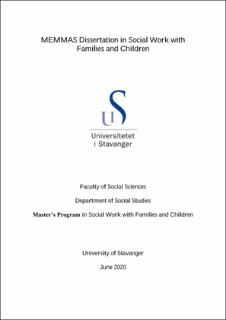| dc.description.abstract | The growth of women’s participation in the labor market resembles a successful dual-earner family policy model in Norway. Traditionally women are responsible for housework and childcare, while men are the breadwinners. As mothers working full time and fathers taking paternity leave, it creates an opportunity for negotiation about housework and childcare. Gender egalitarian attitudes are associated with an equal division of roles between men and women. This thesis aims to study the relationship between gender attitudes and division of housework tasks and care by looking at the underlying factors such as gender, age, education, and paid-work hours. Based on the International Social Survey Program (ISSP) on Family and Changing Gender Roles conducted three times in 1994, 2002 and 2012 in Norway, this study investigated the changes and correlations between gender attitude and division of housework and childcare. Contrary to what has been assumed, gender attitude does not have a significant correlation with the division of housework in the newer ISSP. The results show a clear pattern of reduction in negative attitudes towards working women, but the division of household work and care remains traditionally divided. Women do more routine tasks associated with femininity, such as laundry, taking care of sick family members, and grocery shopping. On the other hand, men do more intermittent tasks associated with masculinity, like household repair. The findings indicate that, presumably, there are different paradigms of gender egalitarianism in public and private spheres. Norway is one of the countries with the smallest gender gap in terms of economic activities, politics, and social rights. Inside homes, women are still obliged to do housework and childcare more than men. Moreover, the labor market is segregated with women dominating the public sector, especially in the field of health and education. Women choose the field of work that is less time consuming and more flexible, perhaps because they try balancing work and family. This study implies that housework and childcare are intertwined with employment for both men and women, which is important to be studied further. | en_US |
